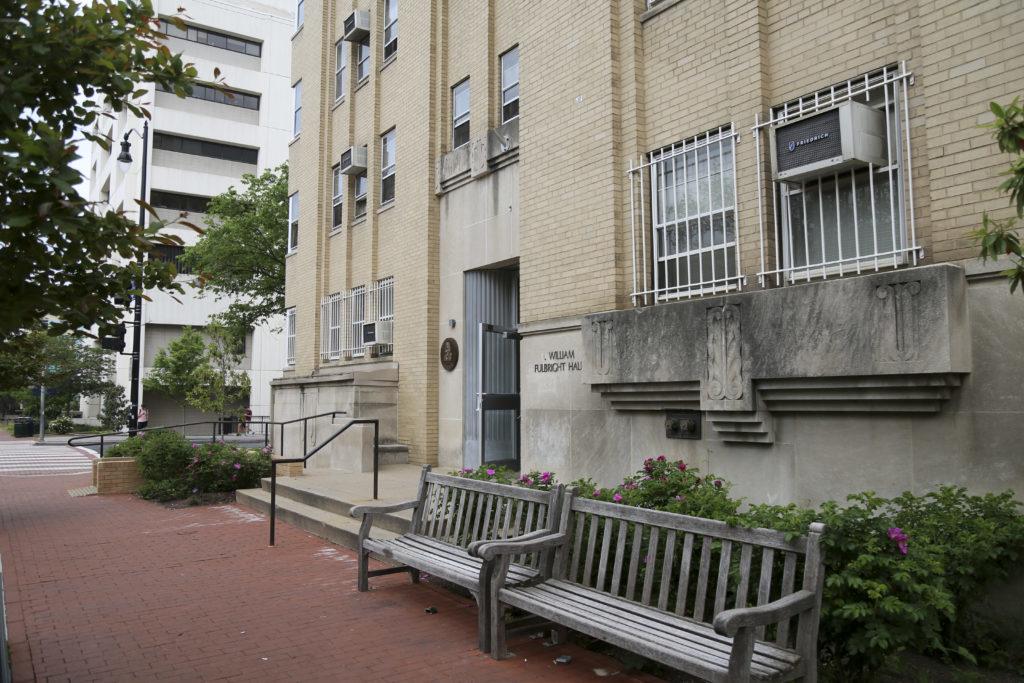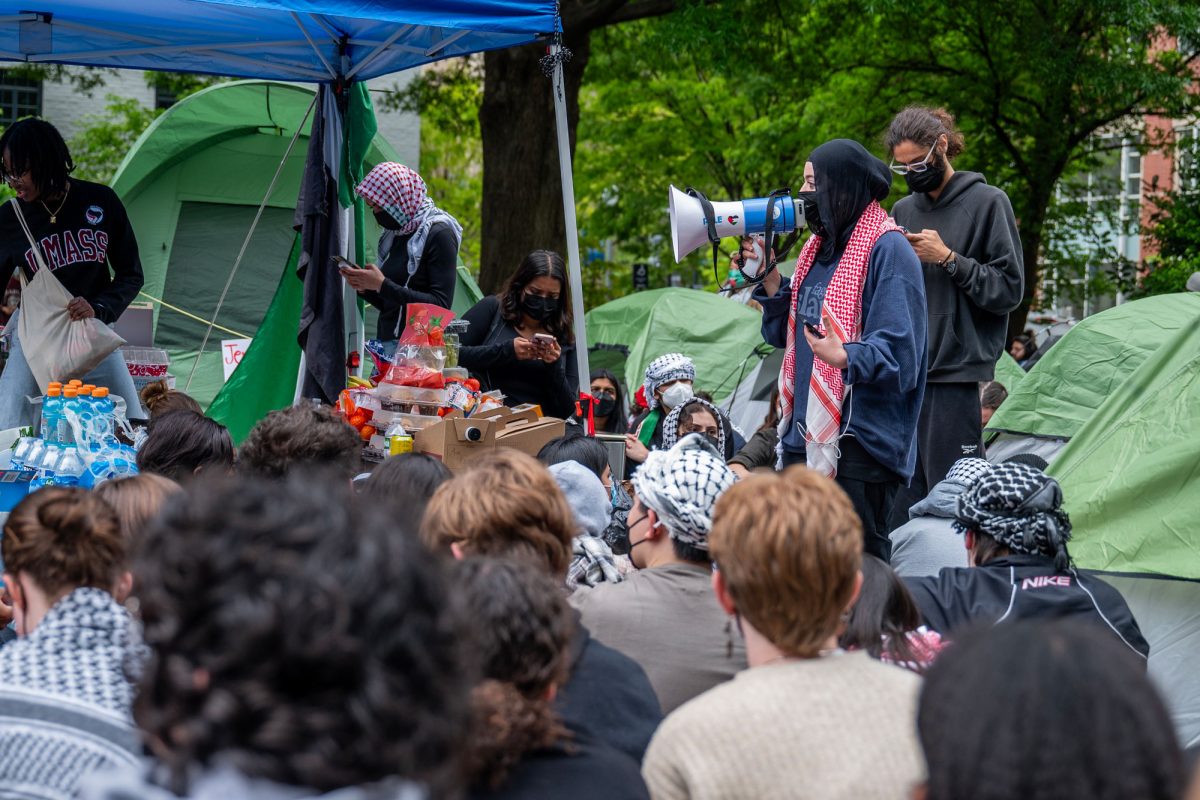Five student organizations launched a petition Monday pressing officials to reconsider the names of six campus buildings titled after controversial historical figures and the Colonials moniker.
The Black Student Union, Students for Indigenous and Native American Rights, Persist GW, Students Against Imperialism and GW Black Defiance organized the Reconsider the Names campaign, which urges GW to form committees that consider re-examining the names of the Marvin Center, Churchill Center and Fulbright, Madison, Monroe and Francis Scott Key halls. The petition comes a week after administrators greenlighted a framework to review requests for name changes.
“For years, these buildings were named after slave owners, proponents of racial segregation and war criminals,” the petition states. “It is time we sever ties with them and start anew.”
The petition collected more than 2,800 signatures from students, faculty and GW community members as of Thursday, BSU Director of Advocacy Rayaan Ahmed said. Renaming requests must rack up at least 500 signatures and be sent to the Office of the President to be considered, according to the framework.
Ahmed said members created a list of campus buildings named after slave owners, proponents of segregation and war criminals following GW’s announcement. Ahmed said for each building name on the list, BSU’s advocacy team reviewed Hatchet archives and other research to provide context about each building’s namesake.
“I can’t emphasize this enough but asking students to pursue activities in buildings named after people who enslaved their people does a disservice to our education,” Ahmed said in an email. “Taking down names is not erasing history, it’s understanding history fully.”
She added that the list became longer than her team of three could handle, prompting the group to bring in students from other student organizations that had also advocated for the removal of building names. She said removing the buildings’ names is not “erasing history” but rather “understanding history fully” to cultivate a more inclusive environment for Black, Indigenous and people of color.
“We are not overreacting when we say it’s time we do away with them, it’s the right first step in accountability,” Ahmed said. “GW was the last of the D.C. schools to desegregate and have abysmal rates of admission for Black students. We deserve to enter spaces that uplift us and support our education journey.”
SINAR President Georgie Britcher said the organization has been pushing for the removal of the Colonials moniker since it formed two years ago. SINAR joined the Reconsider the Names campaign because it prioritizes the concerns of BIPOC, she said.
University President Thomas LeBlanc assembled a special committee that will evaluate the Colonials moniker based on its historical context, process of initial selection, connection to GW, “depth and breadth” of offense or harm, prominence at GW and the legal and financial effect of changing the name.








